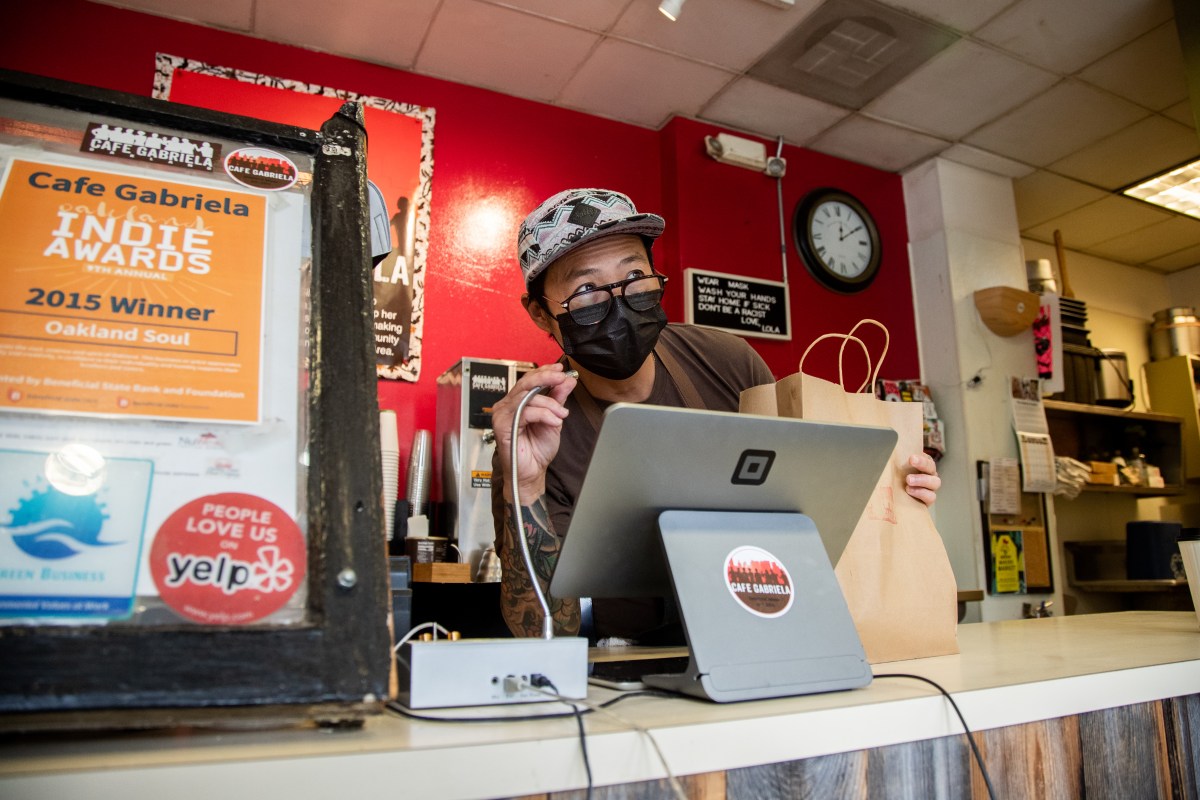
Cafe Gabriela
988 Broadway (near Ninth Street),
Oakland
When Penny Baldado — who uses they/them pronouns — opened Cafe Gabriela in Downtown Oakland 12 years ago, they were an undocumented immigrant from the Philippines. The idea behind the sandwich and salads spot, Baldado said, was to try and touch people’s lives with something of their creation, in hopes that a community forms around it.
“As a Queer/transmasculine person, LGBTQIA+ folks have created chosen families, communities that show up for us when our blood relatives cannot,” Baldado said. “What I am trying to say is that this is not an original action from me or Cafe Gabriela but this has been a practice of resistance and resilience within our communities for such a long time now.”
The cafe’s name is inspired by Gabriela Silang (full name: María Josefa Gabriela Cariño de Silang), the 18th century Filipina revolutionary who led a political movement resisting Spanish rule over the Philippines. The story of Silang leading her people against an oppressive regime resonated with a young Baldado, who remembers learning about Silang and the independence movement growing up.
“I’m a spiritual person and I feel like I’m connected to my ancestors, and I feel the spirit of Gabriela in my mind,” Baldado said. Baldado was wracked with insecurity about living paycheck-to-paycheck as an undocumented U.S. resident, but “when I thought about her,” Baldado said, “I felt this push to write more about this business plan that I had, and I felt like I needed that.” (Baldado is no longer undocumented, they confirmed.)
Another motivation behind the business was a desire to combat anti-immigrant sentiment. “There is the narrative that we steal jobs from citizens, so I asked myself the question, ‘What if I made my own business and own job, would I be able to stay here?’ and so I did,” Baldado said.

Since they were still undocumented when they finalized their business plan and prepared to launch, Baldado had to co-open the cafe with their partner. It was that partner’s name Baldado used to sign a lease, to move into one of the many downtown storefronts left vacant in the 2009 recession and apply for a $30,000 loan to get the restaurant off the ground. But the responsibility for the restaurant was squarely on Baldado’s shoulders, alone, they said.
“Once I opened my business, I woke up every morning at 4:30 a.m. and picked up the coffee, pastries, and produce,” Baldado said. “I did it all myself.”
Baldado’s menu has remained largely unchanged since the cafe’s inception. Every day, they prepare three kinds of salads and four kinds of sandwiches, including a popular pulled pork adobo offering. Their cafe also features locally produced items such as coffee from Red Bay Coffee and baked goods from Wooden Table Baking Company. It’s a lineup that helped build a loyal customer base from the area’s office and city employee crowd.
Once the pandemic hit and those office workers started to work from home, Cafe Gabriela struggled to remain afloat. A contract with World Central Kitchen helped, paying the restaurant to provide 350 meals a week to community members in need. Ultimately, however, Baldado had to lay their workers off and — as in the cafe’s earliest years — ran the place on their own.
The pressure has taken a toll. “I really was contemplating shutting down the cafe because since the start of the shutdown, we lost like 85% of our customers,” Baldado said. Like many business owners, Baldado applied for federal and private relief grants to support their business, including a $100,000 COVID relief grant opportunity sponsored by the National LGBT Chamber of Commerce and food delivery company Grubhub. They also applied to, and were awarded, a Comcast RISE grant. (Comcast’s RISE grant program is a financial supporter of Nosh parent organization Cityside, but does not have a hand in editorial coverage or decisions.)

In November, Baldado learned that they were one of a handful of businesses that were awarded that grant. It’s enough money, Baldado said, to keep Cafe Gabriela going for the time being.
“I believe what makes us truly happy is to be of service to others,” Baldado said, “and I feel like one of the things that is also really true for me is that whatever I give out to the universe and to the community, it comes back a hundredfold.”
That attitude of giving has driven Baldado since well before the pandemic began. “I feel like my experience as a queer kid in the Phillipines and as an undocumented immigrant here made me feel discarded,” they said. “Because I know that feeling, I don’t want others to feel that.”
